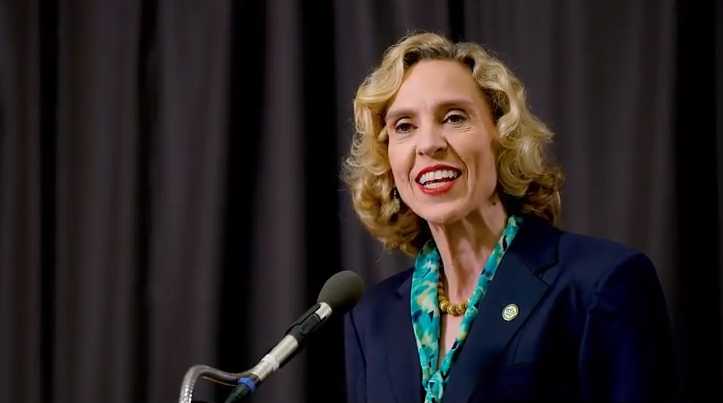 CHARLOTTE, N.C. — The Democratic mayor of Charlotte, North Carolina has acknowledged that confusion has arisen following her announcement on Monday night that the city council would no longer present prayers during public meetings.
CHARLOTTE, N.C. — The Democratic mayor of Charlotte, North Carolina has acknowledged that confusion has arisen following her announcement on Monday night that the city council would no longer present prayers during public meetings.
“Last night, at the open portion of our dinner meeting, the council agreed to end the invocation for our meetings, based on Bob Hagemann’s advice and email regarding recent Fourth Circuit decisions,” Mayor Jennifer Roberts wrote to city council members on Tuesday, according to the Charlotte Observer.
“It appears that there is now some confusion about the unanimous head nods and agreement,” she continued. “Although no one present objected at the time, I have heard public statements by some that now do object.”
According to reports, some members now state they they remained silent, and their silence was misinterpreted as agreement.
Roberts had made an announcement at the start of Monday night’s public city council meeting, outlining that the council would forgo prayer from now on upon the advice of the city attorney.
“We are not going to have an invocation this evening. We are going to change the way we conduct it on the expert advice of our attorney with concern over freedom of religion and separation of church and state and other recent court rulings,” she told those gathered.
However, City Attorney Bob Hagemann sent an email to Roberts and city council the following morning stating that he did not necessarily advise them to discontinue their prayer practice.
“Just to be clear, I have not concluded and have not advised that the Council’s invocation practice is unconstitutional. And I did not advise you to end the practice,” he wrote.
“In light of the Fourth Circuit’s decision in the Rowan County case …, there clearly are legal risks with invocation practices. Obviously, as I stated to you tonight, not providing invocations is 100% legally safe. But the Fourth Circuit did not hold that invocations at the beginning of a county commission or city council meeting are per se unconstitutional,” Hagemann said.
The Fourth Circuit ruling referenced by Hagemann and Roberts pertained to the July decision in Lund v. Rowan County, in which the split court of appeals opined 10-5 that prayers presented during Rowan County’s commission meetings cannot be exclusively Christian.
It said that representing only one faith at public-attended government events violates the Establishment Clause of the U.S. Constitution.
According to reports, Charlotte’s city council members take turns presenting prayers, and most invocations simply refer to God, while sometimes the name of Jesus is mentioned.
Roberts now says that she is going to refer the matter to the Charlotte City Council Governance and Accountability Committee, which can discuss whether or not to recommend that some form of an invocation be reinstated. The matter would then come up for a vote before the full council.
Roberts, an advocate for homosexual and transgender causes, recently ran for re-election in the primaries, but lost to opponent Vi Lyles.
Become a Christian News Network Supporter...


